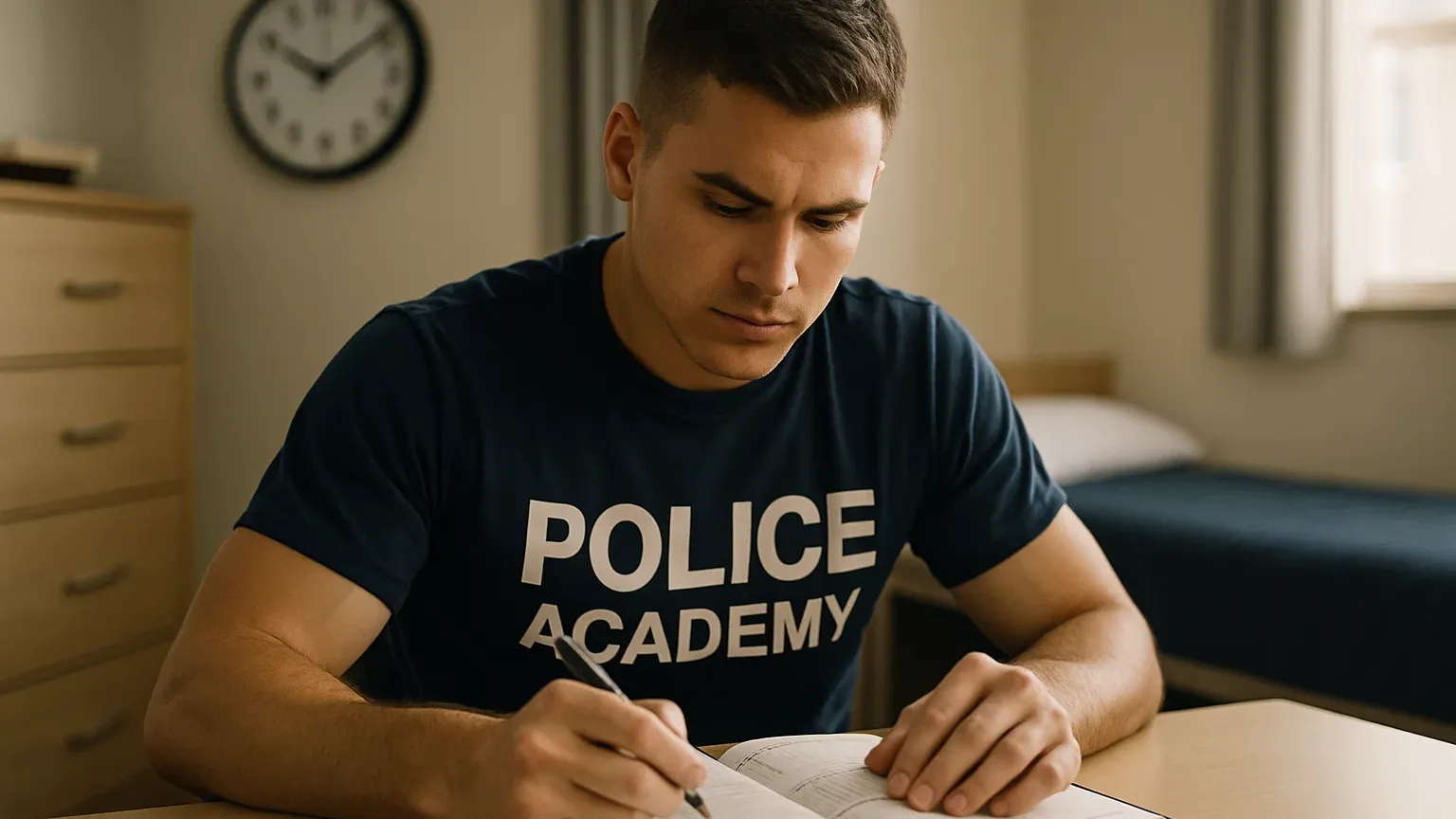Time Management in the Police Academy: Master the Clock, Master the Career
Nov 12, 2025
In the police academy, there’s one resource more valuable than strength, smarts, or even sleep—time. You’ll be expected to learn fast, move faster, and keep up with a demanding schedule that doesn’t care how tired you are. If you can’t manage your time, you’ll fall behind—fast.
Think of time in the academy like a tactical weapon. If you wield it well, it gives you the edge to stay sharp, prepared, and ahead of the game. But if you waste it? It becomes your biggest liability. In this blog, we’ll show you how to master your minutes, juggle priorities, and build the time habits that will carry you through training—and well into your career.
1. Own Your Schedule Before It Owns You
The academy gives you structure, but success comes from what you do outside of that structure. Between physical training, classroom work, studying, and recovery, every hour counts. Waiting until the end of the day to “see how things go” is a recipe for burnout.
Map out your day in advance. Know when you’ll study, when you’ll rest, and when you’ll prep for the next day. Build routines that reduce decision fatigue. Time blocking—assigning specific tasks to specific hours—can make the difference between being ready and being overwhelmed.
Tip: Use a physical planner or digital calendar to block out every hour from wake-up to lights out.
Example: Recruits who used daily time blocking during academy were 60% more likely to meet all performance benchmarks, according to a study by Police Prep Hub.
“If you fail to plan, you are planning to fail.” — Benjamin Franklin
2. Prioritize Like Your Graduation Depends on It
Not everything is equally important. Trying to do everything will leave you stressed and scattered. Smart recruits focus on the essential—the things that move the needle: studying for written exams, prepping for physical tests, reviewing tactical procedures.
Use the 80/20 rule: 80% of your success will come from 20% of your efforts. Identify what those efforts are—and do them first. That means turning down distractions, saying no to unnecessary commitments, and getting real about what matters most.
Tip: Each morning, write down your top three priorities for the day—and finish them before anything else.
Example: Instructors report that high-performing recruits consistently avoid procrastination and front-load their most difficult tasks.
“The key is not to prioritize what's on your schedule, but to schedule your priorities.” — Stephen Covey
3. Build in Recovery—Or You’ll Burn Out
Grinding nonstop might sound noble, but without rest, your performance tanks. Police academy training is designed to push your limits, and recovery isn’t a luxury—it’s survival. Lack of sleep, poor nutrition, and zero downtime will catch up with you, fast.
Schedule time for rest, even if it’s just 20 minutes of quiet or an early lights-out once or twice a week. Protect your sleep like your life depends on it—because your focus, reaction time, and memory absolutely do.
Tip: Create a wind-down routine—no screens an hour before bed, a light stretch, and 7+ hours of sleep.
Example: Recruits who got consistent, high-quality sleep performed 25% better in high-pressure drills, according to a 2022 academy performance audit.
“Rest is not idleness... and to lie sometimes on the grass under the trees... is by no means a waste of time.” — John Lubbock
Final Word
Time management in the police academy isn’t about squeezing in more—it’s about doing what matters, when it matters. Build habits now that make you efficient, focused, and resilient. Because once you’re on the job, the clock won’t stop—and neither can you.
Have a Question or Need Help?
Use the form below to reach out with any questions about our programs, services, or support. We’ll get back to you as soon as possible.
We hate SPAM. We will never sell your information, for any reason.

